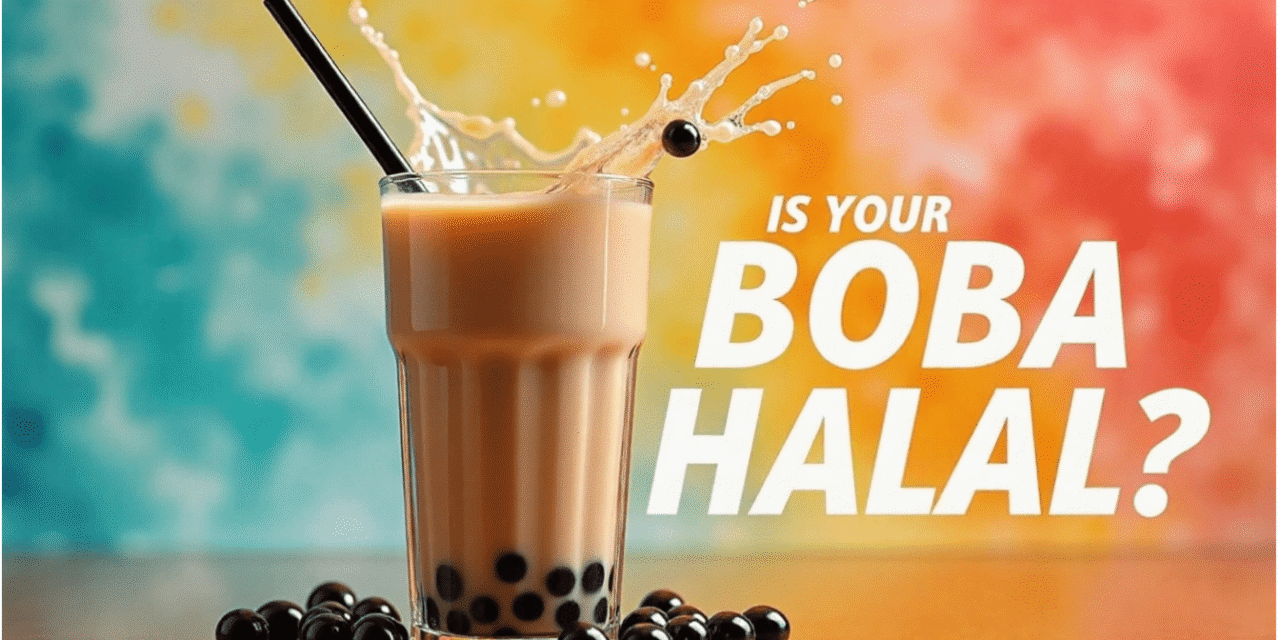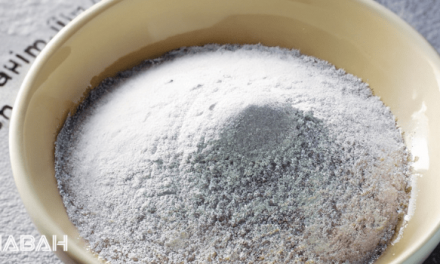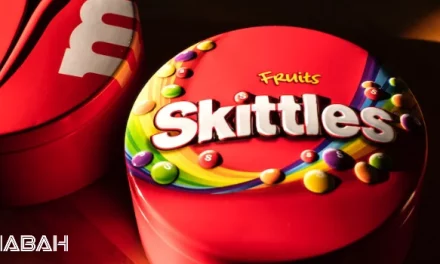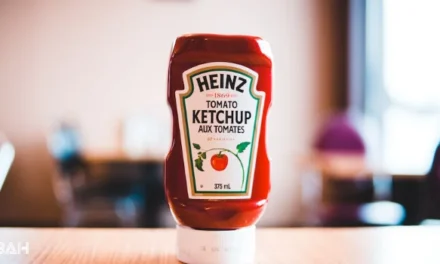As a firm believer in the importance of halal dietary choices, I embarked on a fascinating journey to uncover the halal status of tapioca. In this comprehensive guide, I will delve into the intricacies of halal certification, the religious perspectives and provide a definitive answer to whether tapioca can be enjoyed with confidence in your bubble tea.
The Truth About Tapioca Boba Pearls
Bubble tea, also known as boba tea or pearl milk tea, is a popular drink that originated in Taiwan in the 1980s. The key ingredient in bubble tea is the “bubbles” or “pearls” – chewy tapioca balls that sit at the bottom of the cup.
Bubble tea has now become a global phenomenon, with bubble tea shops popping up around the world. As the drink grows in popularity, many people have questions about whether bubble tea is halal or haram according to Islamic law. Specifically, the tapioca pearls used in bubble tea have raised concerns over their halal status.
“The majority of bubble tea recipes are made from tea (which is Halal) mixed with milk and sugar and tapioca pearls (also Halal).”
Some key considerations regarding the halal-compliance of tapioca pearls include:
- Ingredients used to make the tapioca pearls
- Cassava root is halal
- But flavorings or thickeners may not be
- Food prep and handling
- Must follow Islamic guidelines
- Certification
- Some chains have halal certification
This article will explore the halal status of tapioca pearls and bubble tea in detail.
Background on Halal Foods In Islam
For a food to be considered halal in Islam, it must comply with Islamic dietary guidelines as prescribed in the Quran. There are two broad categories of foods in Islamic law:
Halal Foods
Halal foods are permissible for Muslims to eat. These include:
- Vegetables and fruits
- Grains like wheat, rice, barley
- Meat and poultry slaughtered according to Islamic guidelines
- Seafood
- Dairy products
“Halal foods are foods that adhere to Islamic law, as defined in the Koran…which forbid consumption of certain animals such as pork and obligate that animals are properly slaughtered.”
Haram Foods
Haram foods are prohibited under Islamic law. These include:
- Pork and pork products
- Alcohol and other intoxicants
- Animals slaughtered improperly or not in the name of Allah
- Carnivorous animals
- Blood and blood byproducts
“In Islamic tradition, for any food to be considered Halal it must not contain alcohol or any pork products. Animals must also be slaughtered in a particular manner.”
When evaluating whether a food like tapioca pearls is halal, these criteria need to be considered.
Tapioca Ingredients
The basic ingredients of tapioca pearls are quite simple:
- Cassava root – This is the main ingredient used to make tapioca pearls. Cassava is a tropical root vegetable that is naturally gluten-free. Cassava itself is halal.
- Water – Used to blend the tapioca flour made from cassava. Plain water is halal.
- Sugar – Added to the pearls or in the flavored syrup. Plain white sugar is halal.
- Flavors/Syrup – The tapioca pearls are often cooked and soaked in flavored syrups. This is where potential non-halal ingredients may be added.
“The tapioca balls are made from cassava, a root vegetable used to produce tapioca starch which is gluten-free. Cassava root is Halal. The balls are formed from cassava starch and water.”
Some potential non-halal ingredients that may be used in the flavored tapioca syrup include:
- Gelatin – Derived from pork or other animals. Not halal.
- Artificial flavorings & colors – May contain alcohol or animal extracts. Need to be certified halal.
“The other issue is some places add gelatine made from pork which is used as a gelling agent and thickener. Gelatine is definitely not Halal.”
So while the basic tapioca pearls themselves are halal, the added syrup may contain non-halal ingredients. This needs to be considered when determining if a bubble tea drink is halal.
How Tapioca Can Be Made Halal
There are a few key steps that can be taken to ensure tapioca pearls and bubble tea are halal:
- Use vegetable-based gelling agents – Agar agar or pectin can be used instead of gelatin from animal sources:
“Opt for vegetable-based halal gelling agents like agar agar or pectin instead of questionable ingredients like gelatin.”
- Get halal certification of ingredients – All ingredients including flavors, sweeteners, etc. should be certified halal:
“The syrup would also need to be made from halal compliant ingredients for the final product to be certified halal.”
- Prepare in halal facility – The cooking and preparation of the tapioca pearls should follow Islamic guidelines:
“Additionally, boba has to be manufactured in a halal-compliant facility…”
Following these guidelines helps ensure the final tapioca pearls and bubble tea drink is completely halal. Shoppers should look for halal certification from reputable organizations when purchasing pre-made bubble tea.
Halal Status of Popular Bubble Tea Chains
Some major bubble tea chains have clear policies around using halal ingredients and having halal certification:
- Chatime – Uses halal-certified ingredients and has halal branches:
“Chatime uses Halal ingredients and have Halal certified branches around the world.”
- Sharetea – Does not confirm all ingredients are halal but some locations are halal certified:
“Sharetea states that some of its ingredients are halal certified and some branches are certified.”
- Gong Cha – Uses non-halal gelatin and other ingredients in many locations:
“Gong cha locations outside of Malaysia use gelatin powder that comes from non-Halal slaughtered animals…”
Other chains may vary in halal compliance depending on location. Customers should inquire with individual stores or check company websites when possible. Lack of definitive halal certification could indicate use of questionable ingredients.
Tips for Enjoying Halal Bubble Tea
Here are some tips for Muslim consumers looking to enjoy halal bubble tea:
- Ask about ingredients – Don’t be afraid to ask staff if all ingredients are halal and ask to see halal certification if available.
“Do not hesitate to ask the staff which ingredients they use and request to see a halal certification if they claim to be halal.”
- Customize your drink – Opt out of toppings or mixes that may contain non-halal ingredients like popping boba. Stick to basic milk tea with tapioca.
“Customising your order is key. Avoid toppings like popping boba, which contain gelatine.”
- Avoid fruit-flavored teas – Fruit powders, purees or syrups may have non-halal additives so plain classic teas are a safer bet.
“Go for the classic milk tea instead of fruit-flavoured teas which may contain non-Halal ingredients.”
With some care taken to inquire about ingredients and customize orders, Muslims can enjoy halal bubble tea from shops that use halal-compliant ingredients.
Frequently Asked Questions – Is Tapioca Halal
Is bubble tea made with tapioca halal?
Yes, bubble tea is made with tapioca pearls which are made from the cassava root. Tapioca itself is a pure starch extracted from the root that is considered halal.
Is Boba Halal?
Boba, originating from Taiwan and now a global sensation, has been a topic of concern for many Muslims curious about its halal status. According to multiple sources, the consensus is that boba is indeed halal, primarily because its main ingredient, tapioca pearls, is crafted from tapioca flour, which aligns with Islamic dietary guidelines. However, it’s essential to recognize that the halal status of boba tea is contingent on the halal nature of its individual ingredients. To maximize assurance, making homemade boba tea is advisable, granting full control over ingredient choices and their adherence to halal principles.”
Are the toppings used in bubble tea halal?
The toppings used in bubble tea, such as jelly or popping boba, may vary depending on the specific store or brand. It is important to check the ingredients and look for halal certifications to ensure they are permissible for consumption.
Can bubble tea be considered halal for Muslims?
Yes, bubble tea can be considered halal for Muslims as long as the ingredients used are halal and the preparation process follows Islamic guidelines. It is always recommended to verify the ingredients and the halal status of the bubble tea before consuming it.
Is bubble tea halal in Islam?
Yes, bubble tea can be halal in Islam if it meets the requirements outlined in Islamic dietary laws. This includes using halal ingredients and ensuring that the preparation process adheres to Islamic guidelines.
What are the key halal requirements for bubble tea?
To determine the halal status of bubble tea, it is important to consider the ingredients used. The tea, sweetener, milk, and other additives must all be halal. Additionally, the preparation area and equipment should not be contaminated with haram ingredients.
Is bubble tea halal or haram in Islam?
Bubble tea can be halal if it meets the halal requirements of Islamic dietary laws. However, it can be considered haram if it contains haram ingredients or is prepared in a way that contradicts Islamic guidelines.
Where did bubble tea originate from?
Bubble tea, also known as boba tea, originated in Taiwan. It quickly gained popularity worldwide and is now enjoyed by people of different cultures and backgrounds.
Can bubble tea be made using halal ingredients?
Yes, bubble tea can be made using halal ingredients. By using halal-certified tea, sweetener, milk, and other additives, it is possible to create bubble tea that adheres to Islamic dietary guidelines.
Conclusion
In summary, the basic tapioca pearls used to make bubble tea are generally halal, but additional ingredients may affect the halal status:
- Tapioca pearls made from cassava root are halal on their own.
- Flavored syrups added to the pearls may contain non-halal ingredients like gelatin.
- Preparation of the tapioca pearls must follow Islamic dietary regulations.
“So in conclusion, bubble tea can be halal if care is taken with the ingredients and preparation.”
Consumers interested in enjoying halal bubble tea should:
- Look for halal certification from vendors
- Ask about ingredients and preparation methods
- Customize drinks to avoid non-halal toppings
“Muslim consumers can enjoy halal boba tea by being vigilant and inquiring about the ingredients before purchasing.”
With proper care and consideration of ingredients, bubble tea can be made completely halal-compliant for Muslim consumers looking to enjoy this popular drink.





